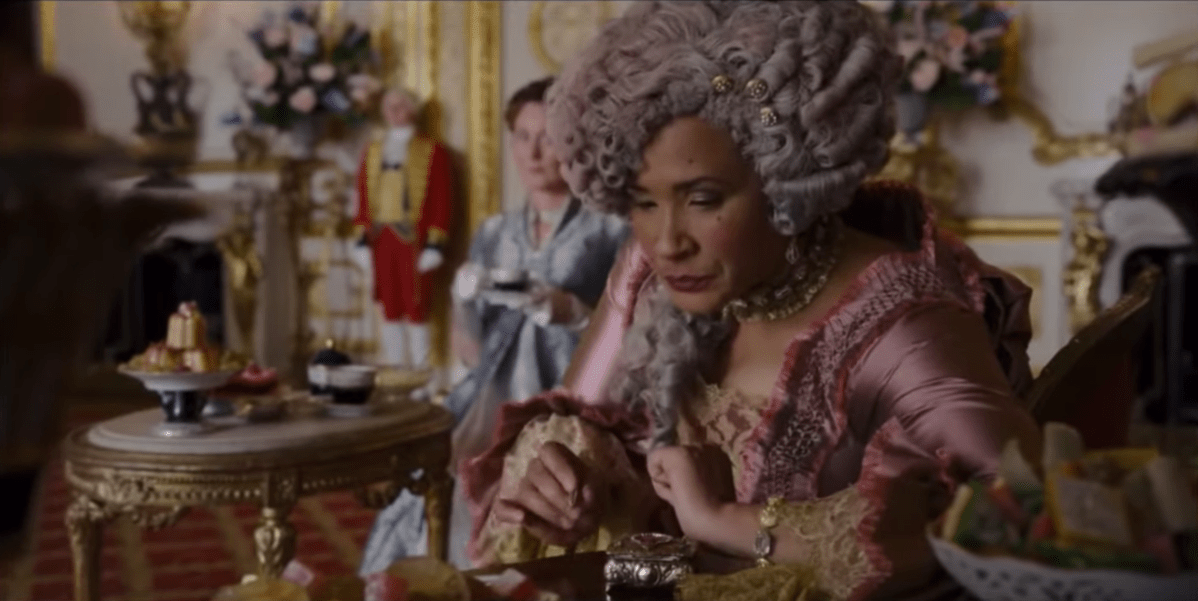Bridgerton has quickly cemented itself as a smash-hit period drama. First debuting in 2020, the series takes viewers back to Regency-era London and drops them into the center of the dramatic lives and loves of the Bridgerton family.
While the series is set in an alternative history, it features many of the era’s actual historical trends. This includes the period’s fashion and its architecture. This means that some trends might seem utterly alien to the modern viewer.
Nowhere is this better seen than with Queen Charlotte. While she is one of the most iconic characters on the show, many are confused by Charlotte’s habit of inhaling a substance called snuff. But what is snuff, and why is she inhaling it?
What Is Snuff?
Snuff is ground-up or shredded tobacco leaves that are often scented or flavored. It comes in two forms, moist and dry.
Moist snuff is placed in the mouth, usually between the cheek and gums in a process often referred to as “dipping”. Those who use moist snuff tend to spit the mixture into a spittoon once they finish. Queen Charlotte is seen with dry snuff. This snuff gets snorted through the nose, usually off the back of the hand or off the thumb.
Like the tobacco found in cigarettes, snuff contains nicotine. This nicotine gets released when the snuff is chewed or inhaled. This nicotine is then absorbed into the body, allowing the user to feel its effects. This means that using snuff is basically just a way to smoke without burning tobacco. Because of this, snuff is usually referred to as “smokeless tobacco.”
It should be noted that snuff is still legal in many countries, even if its use is much less common than it once was. According to the CDC, as of 2020, 2.3% of adults in America partake in some form of smokeless tobacco. While it isn’t readily available anymore, many specialty tobacco retailers stock moist and dry snuff. However, like with all general smoking and tobacco usage, medical professionals heavily discourage it due to the cancer risk.
Was Snuff Use Common In Regency England?
Tobacco became a mass-consumption item in England as early as 1670, with everyone from the workers to the aristocracy partaking in it. At the time, it was believed that tobacco had various medicinal and health benefits. Famously, pamphleteer Anthony Chute declared that smoking had many health benefits, including curing coughs, colds, and melancholy, in his 1595 pamphlet Tobacco.
However, this was before the invention of the Bonsack machine, the machine that would lead to cheap mass-produced cigarettes, so most tobacco was smoked in a pipe as clay pipes were easy to produce and inexpensive to buy.
Snuff was much more expensive than general tobacco, and thus it was mostly reserved for the upper classes. It even had its own highly complex code of etiquette. This led to a boom in snuff paraphernalia, with expensive snuff boxes becoming popular among the elite. Famously, Lord Byron is said to have spent 500 guineas on several ornate snuff boxes made of gold and silver.
For an example of how ingrained snuff was in British society, one merely needs to look to Parliament. When smoking in the chambers was outlawed in the 17th century, MPs were given free snuff to make up for it. The snuff box still remains at the entrance to Parliament, and the privilege still exists.
However, few use the snuff today, and the supply is maintained at the doorkeeper’s personal expense. When asked about it by the BBC in 2013, then doorkeeper Robin Fell said:
“But it’s not a serious drain on my emoluments because when I took over the job, my predecessor left me with a nice supply of snuff, and I haven’t had to replenish it yet.”
Did The Real Queen Charlotte Use Snuff?
In an interview with the Daily Express, actress Golda Rosheuvel described Queen Charlotte as:
“Wealthy, dirty rich, addicted to snuff, devoted to her family, loves gossip, and she is divinely in love with her husband who is slowly going mad.”
There are several historical records of Queen Charlotte being a big fan of snuff, and she acquired the nickname Snuffy Charlotte due to how frequently she was seen using it. She even had a room in Windsor Castle dedicated to storing her snuff stock.
In fact, this habit was so widely known it was often featured in newspaper cartoons and caricatures of the Queen.

